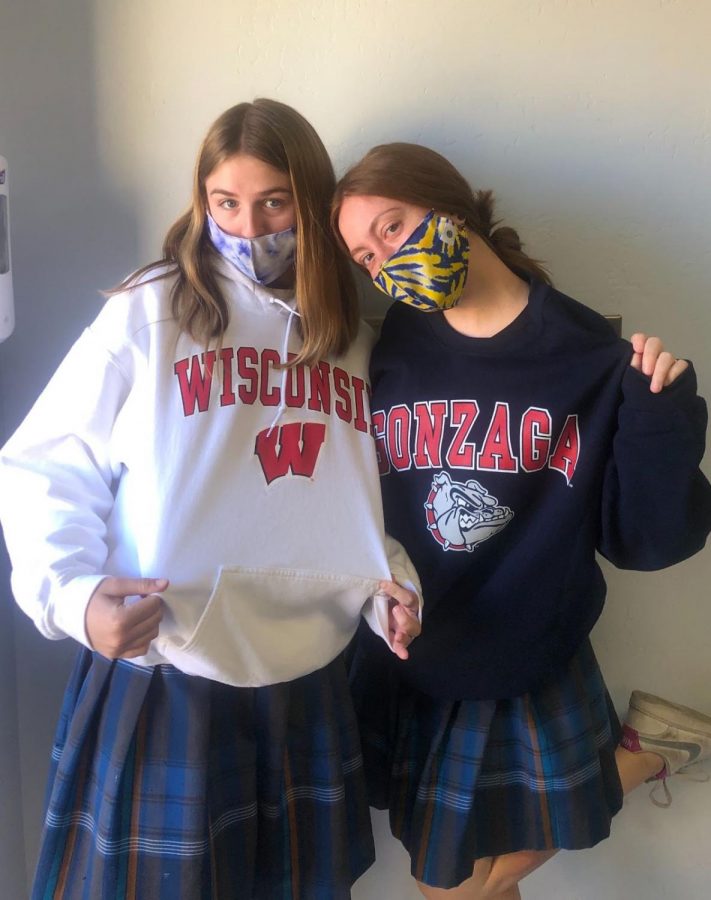Covid-19 alters college admissions
Seniors Reese Dietrich and Kassidy Espinosa pose in their college gear on College Sweatshirt Day.
Each year, hundreds of thousands of high school seniors take on the college admissions process, hoping to get accepted into various universities around the country.
Some dream of going out of state, while others prefer to stay closer to home. Some have a perfect school in mind and others have no idea where they want to go.
One consistent factor in the process, though, is that it is time-consuming, exhausting and extremely competitive. This year, it was even more so.
Due to the ongoing Covid-19 pandemic, the college admissions process was completely different from ever before. While many changes were made to the standard college admissions procedures to accommodate the state of the world, one in particular had a shocking impact.
Most colleges and universities in the U.S. require the submission of standardized test scores, such as those from the SAT or ACT. This year, however, many colleges placed a hold on this requirement and declared their schools “test optional” for the 2020-2021 school year.
“Test optional” essentially means that these schools did not require students to submit their test scores, but they were able to if they wanted. This was mainly because SAT and ACT testing centers were closed down for many of the months students would normally be taking standardized tests, leaving many without scores. As to not disadvantage any applicants, they removed this requirement for the year.
Though it may seem like a fairly simple change, it had extraordinary effects. Without the pressure of having to send standardized test scores, many students decided to apply to more schools, specifically highly selective schools.
As a result, schools like Harvard University received a 42% increase in applications, reaching about 57,000 applicants. Furthermore, the University of California Los Angeles received over 139,000 applications.
Despite more applications, there are still a small amount of spots available. This means that acceptance rates dropped drastically, some to an almost absurd level. For example, the Massachusetts Institute of Technology admitted just 4% of applicants this year, dropping from 7% last year.
Admissions were affected by the 2019-2020 school year because many applicants decided to take a gap year. This meant that many students would actually be members of the class of 2025 and start in the fall of 2021.
The already competitive college admissions process somehow became even more complicated this year and it has encouraged many permanent changes. Some schools have already stated that they will extend the test optional policy for the 2021-2022 admissions cycle, and some even beyond that.
This year has had unbelievable effects on the admissions process and will leave a lasting impact. It certainly will be something to watch over the next few years as it continues to change and develop for future applicants.




